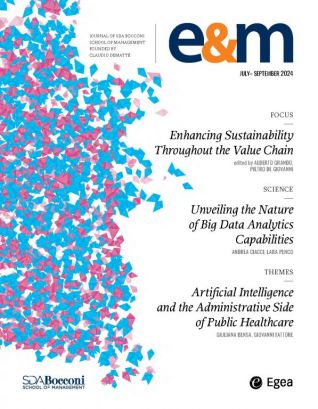E&M
2024/3
Unveiling the Nature of Big Data Analytics Capabilities. Trust and the Moderating Role of Environmental Hostility
To realize a data-driven transition, firms must evolve into more collaborative and democratic entities. This requires cultivating organizational trust and understanding its effects on developing the tangible, intangible, and human resources relating to big data analytics capability (BDAC). Despite the relevance of the topic, empirical evidence on the impact of organizational trust on BDAC is lacking. This paper explores the effects of organizational trust on various dimensions of BDAC and analyzes the moderating role of environmental hostility. Our research reveals the contingency-dependent nature of trust in developing BDAC, as its effects become positive when entrepreneurs perceive increasing environmental hostility. To fully leverage a data-driven transition in hostile environments, managers should focus on achieving higher organizational trust to enable a data-driven culture, improve technical and managerial skills, and empower employees.
Keywords: 10.1485/1120-5032-202403eng-6


